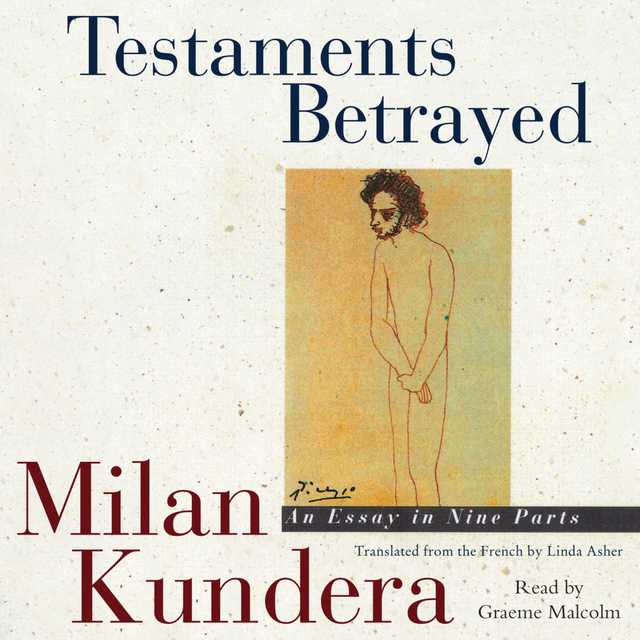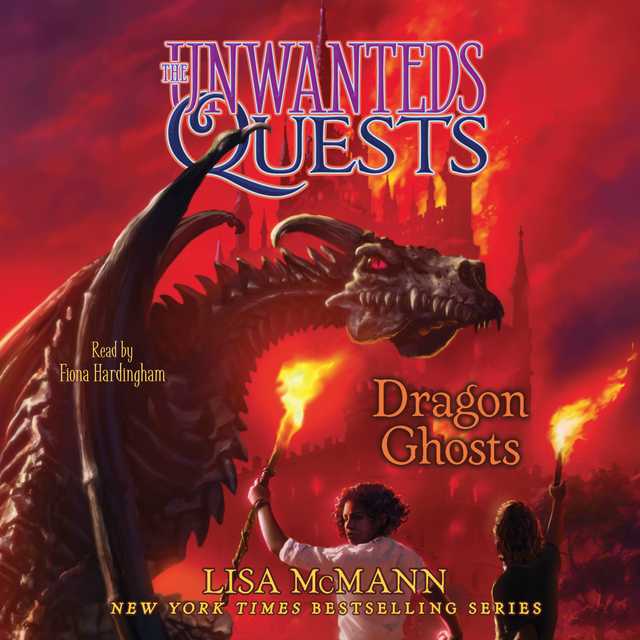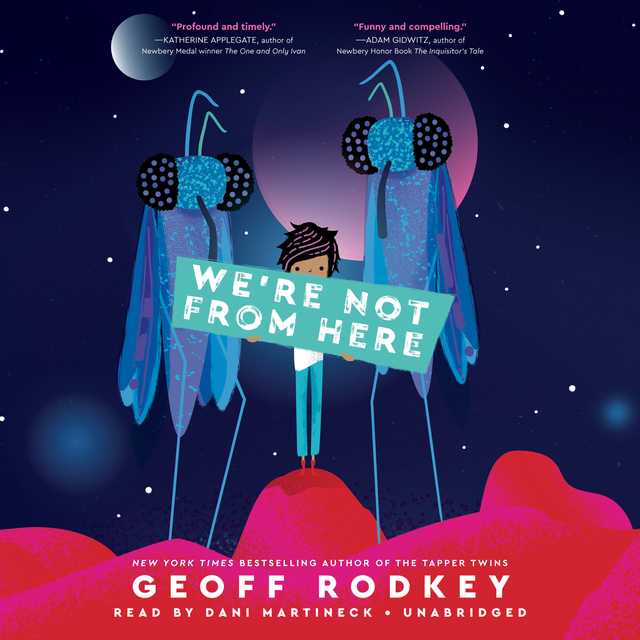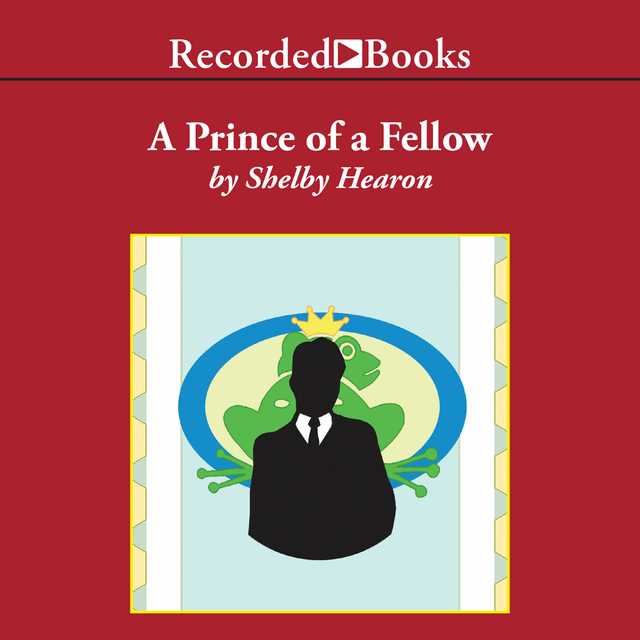Testaments Betrayed Audiobook Summary
Milan Kundera has established himself as one of the great novelists of our time with such books as The Unbearable Lightness of Being, Immortality and The Book of Laughter and Forgetting. In Testaments Betrayed, he proves himself a brilliant defender of the moral rights of the artist and the respect due to a work of art and its creator’s wishes. The betrayal of both–often by their most passionate proponents–is the principal theme of this extraordinary work. Readers will be particularly intrigued by Kundera’s impassioned attack on society’s shifting moral judgments and persecutions of art and artists, from Mayakovsky to Rushdie.
Other Top Audiobooks
Testaments Betrayed Audiobook Narrator
Graeme Malcolm is the narrator of Testaments Betrayed audiobook that was written by Milan Kundera
Milan Kundera is the author of the novels The Joke, Farewell Waltz, Life Is Elsewhere, The Book of Laughter and Forgetting, The Unbearable Lightness of Being, and Immortality, and the short-story collection Laughable Loves–all originally written in Czech. His most recent novels Slowness, Identity, and Ignorance, as well as his nonfiction works The Art of the Novel, Testaments Betrayed, The Curtain, and Encounter, were originally written in French.
About the Author(s) of Testaments Betrayed
Milan Kundera is the author of Testaments Betrayed
More From the Same
- Author : Milan Kundera
- Life Is Elsewhere
- Laughable Loves
- Identity
- The Joke
- Immortality
- Publisher : HarperAudio
- Abraham
- American Gods [TV Tie-In]
- Dead Ringer
- House of Sand and Fog
- Prey
Testaments Betrayed Full Details
| Narrator | Graeme Malcolm |
| Length | 7 hours 37 minutes |
| Author | Milan Kundera |
| Publisher | HarperAudio |
| Release date | October 23, 2012 |
| ISBN | 9780062215642 |
Additional info
The publisher of the Testaments Betrayed is HarperAudio. The imprint is HarperAudio. It is supplied by HarperAudio. The ISBN-13 is 9780062215642.
Global Availability
This book is only available in the United States.
Goodreads Reviews
Jeff
February 24, 2016
Insightful readings of Kakfa, Gombrowicz, Janacek, Stravinsky, etc. And a hard look at how the novel feels increasingly marginalized in today's culture. Although it was written in 1989, so much of this book feels like it's aimed at our Social Media age: "Suspending moral judgement is not the immorality of the novel; it is its morality. The morality that stands against the ineradicable human habit of judging instantly, ceaselessly, and everyone; of judging before, and in the absence of, understanding. From the viewpoint of the novel's wisdom, that fervid readiness to judge is the most detestable stupidity. Not that the novelist utterly denies that moral judgement is legitimate, but that she refuses it a place in the novel."
Jonfaith
January 27, 2020
Over what period of time can we consider a man identical to himself?Inspired by Mr. Clarke reading this, I picked up my own copy and upon reading, realized I read much of this, if not all upon its publication some 27 years ago. I highlighted the query above as it was crucial in this reading of such a sinuous essay. I read a great deal in my mid-20s, alas in 2020 I look back and recognize that as much time has lapsed since those initial encounters as I was of age at that point. I found several instances here Kundera pronounced judgement and like the scion of a Kafka parable, I heeded. Kundera offers rebukes to both Balzac and Orwell and I fear that at least through my 20s I followed such. Coining a phrase from Carlos Fuentes, my mind's customs house wasn't as rigorous as it could have been. Kundera offers a fragile albeit forceful certainty in his essays. This is similar to Auden in his. I must admit I find both bothersome. Kundera does celebrate the rolling , disproportionate grotesque of the novel and cites many. I appreciate that. I would be curious about Kundera's thoughts on Prae: Vol. 1. Speaking of such, I have decided the Hungarian bulky monster will be a home only read, given its bulk and titular homonym. I suppose my verdict is mixed, as most should be, given I enjoyed the return to a time (of my initial encounter with this essay) but I haven't found the argument here to pursue anything cited. I suppose that statement is imprecise. I would love to read Rabelais again.As a postscript I have enjoyed listening to Janacek today.
Michalle
January 19, 2008
Only Kundera could make me cry with an essay about literature, while I was on a plane making its descent into the airport in Berlin. His all-consuming radical understanding of the individual's need for privacy is refreshing given the current personalization of nearly everything.
Domenico Fina
October 01, 2017
Tutti i capitoli che riguardano Kafka sono eccellenti. È desolante non capire l'intenzione estetica delle cose, delle persone, dice Kundera, per difendere Kafka da quelli che non lo hanno capito. Max Brod il suo migliore amico non lo ha capito, già questo potrebbe essere un racconto di Kafka, molti traduttori non lo hanno capito. Ai traduttori piacciono i sinonimi, sembra più elegante la non ripetizione, ma Kafka usa ripetere talvolta la stessa parola. Una voce chiamò Frieda, "Frieda" disse K. all'orecchio di Frieda, trasmettendo in tal modo il richiamo. Frieda in questa frase è scritta tre volte, ma i traduttori scrivono 'all'orecchio della cameriera' (o all'orecchio della compagna) per non scrivere Frieda per la terza volta. Kundera dice una cosa che stracondivido, cosa ci avrebbe messo Kafka a usare invece di Frieda, cameriera, compagna, fidanzata, amica, eccetera? Niente. E loro, i traduttori, non si pongono questa domanda, loro traducono secondo il fare comune (evitare le ripetizioni se non c'è un chiaro motivo). Ma questo significa non capire l'intenzione estetica di Kafka; a me sembra chiarissimo, Kafka scrive Frieda perché non vuole aggettivare una persona, non vuole renderla ruolo, vuole lasciarla intera. Kafka usa pochi aggettivi perché incanalano l'immaginazione quando lui vorrebbe lasciare le cose nello stato vivo, indefinito, come negli amplessi tra i suoi personaggi. Non scrive, è stato brutto o è stato bello, semmai scrive che provarono estraneità, ma non perché sono vergini, ma perché l'estraneità si prova solo quando non si è automatizzata l'esperienza. A Kafka interessa lasciare l'esperienza nello stato indefinito, che è quello più autentico. Per questo in Kafka i suoi personaggi si muovono in modo anomalo, strambo, grottesco. Spesso periscono.
James
December 30, 2021
Is it an essay, a 278-page essay? Yes, I finally decided; it's an essay which flows thematically along its course the whole length. But along the way it pools and eddies, backs up on itself into swirls of ideas and digressions.The subject of this flow is modern European culture we recognize in the novel and symphonic music. Kundera conveniently teams them together as the novel form. His concern is whether we owe more allegiance to the artist or to his body of work. Betrayal, as I read Kundera, can fall on both sides of the fence. He begins with Salman Rushdie and The Satanic Verses, a novel he says is decidedly European in style and focus. One of the problems with the famous fatwa placed on Rushdie by Middle Eastern religious Diktat was that the whole dustup showed the west unable to defend its culture from unreasonable ideas. This is the opening salvo of Kundera's criticism that we're betraying our cultural aesthetic. Failures such as this, failures to support artistic work, can take many forms. His essay leaves Rushdie to discuss several other composers and novelists whose work has been amended or otherwise abused by critics and performers. So we learn that the great Jeffrey Meyers biography of Hemingway (the only non-European subject, if I remember correctly) caused the entire body of novels and stories to be erroneously viewed as roman a clef. We learn that the conductor Seiji Ozawa deflated a Mahler symphony by including a movement the composer has decided was inferior and had earlier deleted. We're convinced that Nietzsche and Beethoven can be paired together as novelists. More blurring occurs when we're faced with deciding when the novel becomes philosophy (Sartre) and philosophy becomes the novel (Nietzsche). And we learn that on the gradual shift from culture to journalism (an observation even more surprising when you remember the book was published in 1993), as Kundera seems to see cultural development in the 20th century, many masterworks like those of Hermann Broch and Robert Musil have been pushed to the margins of distinction by the aesthetic shift, which is another betrayal. Along the course of the essay's flow the discussion slows and pools around such subjects as Stravinsky, Leos Janacek, Thomas Mann, and Tolstoy. We leave them and return to them again and again.The great ocean this streaming essays flows into is Kafka. His betrayal may be the most famous in literature, that of Max Brod's ignoring his written instructions--testaments--that his manuscripts be destroyed. The tributaries of Tolstoy, Broch, Musil, Mann, Nietzsche, Stravinsky and Janacek and all the rest have been headed here. Kundera interestingly writes that Kafka's wishes were motivated by shame that his private biographical influences would be laid bare--another of Kundera's themes--more than by an evaluation of the works themselves. After all, when Kafka died he was still unknown and unpublished and without literary stature. Just as interestingly Kundera admits he would have acted as Brod did, would have betrayed Kafka's testaments.
Farhan
October 16, 2015
The story being told here is not serious There are no statements of truths (scientific or mythic) hereNo promise to describe things as they are in realityThe story being told here is not serious Even though it is about the most dreadful thingsEvery answer is a booby trapPaz: Humor renders ambiguous everything it touchesIf I were asked the most common cause of misunderstanding between my readers and me, I would not hesitate: humorCreating the imaginary terrain where moral judgment is suspended was a move of enormous significance:Only there could novelistic characters developE M Cioran calls European society "the society of the novel" and the European as "the children of the novel"The removal of gods from the world is one of the phenomena that characterizes the Modern EraThe removal of gods does not mean atheism, it denotes the situation in which the individual, the thinking ego, supplants God as the basis for all thingsThe historical and psychological exploration of myths, of sacred texts, means: rendering them profaneFor religion and humor are incompatibleWe belong to the same culture, rooted in the Christian past, without which we would be mere shadows without substance, debates without a vocabulary, spiritually statelessMy nonbelief and their belief were oddly closeWhat is an individual? Wherein does his identity reside? All novels seek to answer these questionsDostoevsky's aesthetic: his characters are rooted in a very distinctive personal ideology, according to which they act with unbending logicWe think we act, we think we think, but it is another or others who think and act in us:That is to say, timeless habits, archetypes, which — having becomes myths passed on from one generation to the next — carry an enormous seductive power and control us (says Mann) from "the wall of the past"Individual is only a sum of the suggestions and requirements that emanates from the well of the pastFour personal communist universes grafted onto four European pasts:Ludvik: the communism that springs from the caustic Voltairean spiritJaroslav: communism as the desire to construct the patriarchal past that is preserved in folkloreKostka: communist Utopia grafted onto the Gospel Helena: communism as the wellspring of enthusiasm in a homo sentimentalisEach of these personal universe is caught at the moments of its dissolution: Four forms of communism's disintegration, which also means the collapse of four ancient European venturesIn The Joke, the past appears only as a facet of the characters' psychesThe coexistence of different periods sets the novelist a technical problem:How to link them without having the novel lose its unityIn Fuentes, his characters move from one periods to another as their own reincarnationsIn Rushdie: supratemporal connectionIn mine, the past and the present are bridged by common themes and motifsAs a novelist, I have always felt myself to be within historyAll my novels breathe a hatred of historyThe history of humanity and the history of the novel are two different thingsThe former is not man's to determine, it takes over like an alien force he cannot controlWhereas the history of the novel (or of painting, of music) is born of man's freedom , of his wholly personal creations, of his own choicesThe history of an art is a revenge by man against the impersonality of the history of humanitySatanic ambiguity turns every certainty into enigmaKafka was the first to describe the comic side of that sadnessFilth: it is inseparable from sex, from its essenceParadox: the "fusion of dream and reality"The two assistants from the castle are probably Kafka's greatest poetic find:Agents of the total destruction of private life(Not just escape) apprehending the real world is part of the definition of the novelStravinsky's music is inspired only by music, it is "music about music"Kafka's Amerika is a "literature about literature"In Kafka's Amerika we find ourselves in a universe of feelings that are inappropriate, misplaced, exaggerated, unfathomable, or — the reverse — bizarrely missingThrough ecstasy, emotion reaches its climax, and thereby at the same time its negation (its oblivion)Ecstasy means being "outside oneself": the act of leaving one's positionEcstasy is absolute identity with the present instant, total forgetting of past and futureIf we obliterate the future and the past, the present moment stands in empty spaceMan desires eternity, but all he can get is its imitation: the instant of ecstasyStravinsky's music is a music from which music is banishedTo know any phenomenon deeply requires understanding its beauty, actual or potentialRemembering is not the negative of forgettingRemembering is a form of forgettingWe die without knowing what we have livedThe need to resist the loss of the fleeting reality of the present arose for the novelIn Joyce, a single second of the present becomes a little infinityHemingway's artistic obsessions: to catch the structure of real conversationMelodization of dialogue is what is so striking in HemingwayWhat is the melodic truth of this sentence?What is the melodic truth of a vanished momentIn 1948, through the years of Communist revolution in my native country, I saw the eminent role played by lyrical blindness in a time of errorAre you on the left or the right? Neither. I'm a novelistModern art: a revolt against the imitation of realityMann: descriptive novelMusil: thinking novelExistence cannot be systemizedIn Musil everything becomes theme (existential questioning)If everything becomes theme, the background disappears and, as in a cubist painting, there is nothing but foregroundLost Letters introduces the theme of man and history in its basic version: man collides with history and its crushes himThought, expression, composition are inseparableThe composition should itself be an inventionA novelist must systematically desystemized his thoughtNietzsche brought philosophy closer to novelMusil brought the novel towards philosophyThe advantage of smallness (of nation): the wealth in cultural events is on a "human scale"Ah, small nationsWithin that warm intimacy, each envies each, everyone watches everyone"Families, I hate you!"And still another line from Gide:"There is nothing more dangerous for you than your own family, you own room, your own past . . ."The novel is the fruit of a human illusionThe illusion of the power to understand othersSince James Joyce we have known that the greatest adventure of our lives is the absence of adventureThe little provincial world that surrounds Tamina is characterized by an innocent egocentrism:Everyone has sincere liking for her, and yet no one tries to understand herThe trial in Kafka's novel is the one that Kafka brings against himself, K. being nothing but his alter egoEcstasy is a moment wrenched out of time — a brief moment without memory, a moment surrounded by forgettingTolstoy argues against the idea that history is made by the will and reason of great individualsHistory makes itself, he says, obeying laws of its own, which remain obscure to man Great individuals "all were the involuntary tools of history"Man lives consciously for himself, but is unconsciously a tool in the attainment of the historic, general aims of mankindHow is it possible to love someone and at the same time misunderstand him so completelyShame is one of the key notions of the Modern EraWe are entering a time when the highest stake is the survival of the disappearance of the individualThis transformation of a man from subject to object is experienced as shameWhat made him [Kafka] want to destroy them was shameThe shame of leaving private things lying about for the eyes of othersThe shame of being turned into an objectThe shame that could "outlive him"He [Max Brod] betrayed him [Kafka]Biography: newness and accuracy of real factsNovel: revolution of previously unseen possibilities of existenceA memory doesn’t give us back the dead person's presenceMemories are only confirmation of his absenceIn memories, the dead person is only a past that is fading, receding, inaccessible
Fernanda
June 17, 2012
5+ merece este libro. Este ensayo sobre la novela es una obra fabulosa. Tiene una estructura muy a la Kundera donde puedo ver muchas de sus ideas generales plasmadas en sus libros, y lo más importante, me ayudó a comprender cosas que se escapaban de mi entendimiento para poder comprender más lo que Kundera trata de decir.Este libro tiene algunos cruces con la historia de la música que en lo personal me pesó bastante porque no soy una conocedora y realmente no estoy muy interesada, sin embargo no me quedó de otra más que darle una revisada a un par de obras de Stravinski.Lo que puedo decir es que , es una obra muy informativa, explicativa e inspiradora. Me ha llevado a desear leer algunos libros, especialmente leer un poco más al buen Kafka.En fin. Una excelente obra, con unos quotes de primera.
Jeremy
October 15, 2010
Great art history lessons. Great criticism of art criticism, and of art curation. But I grew weary of the presentation of his artistic preferences and opinions as moral absolutes. There are many novels outside the constraints of Kundera's proclamations. But still, enlightening and entertaining.
Shane
April 13, 2021
Lektura na dwa razy nawet dla raczej wolniej czytającego człowieka jak ja. Niesamowicie fascynujące teksty, ciekawe podejście i naprawdę świetny język. Już nie mogę się doczekać kolejnego literackiego spotkania z Kunderą.
Carlos
January 04, 2021
immaculate thinking — even with the inept understanding of rock and the occasional lapses into that hoary Modern line: “political? pas moi!”. love the janacek recommendations: string quartets 1 and 2 baby o yeah
Josh
January 27, 2014
Milan Kundera is my favorite person
Harish
January 24, 2010
I wonder, why they have not yet given him a Nobel Prize, while twits have walked away with more...
Frequently asked questions
Listening to audiobooks not only easy, it is also very convenient. You can listen to audiobooks on almost every device. From your laptop to your smart phone or even a smart speaker like Apple HomePod or even Alexa. Here’s how you can get started listening to audiobooks.
- 1. Download your favorite audiobook app such as Speechify.
- 2. Sign up for an account.
- 3. Browse the library for the best audiobooks and select the first one for free
- 4. Download the audiobook file to your device
- 5. Open the Speechify audiobook app and select the audiobook you want to listen to.
- 6. Adjust the playback speed and other settings to your preference.
- 7. Press play and enjoy!
While you can listen to the bestsellers on almost any device, and preferences may vary, generally smart phones are offer the most convenience factor. You could be working out, grocery shopping, or even watching your dog in the dog park on a Saturday morning.
However, most audiobook apps work across multiple devices so you can pick up that riveting new Stephen King book you started at the dog park, back on your laptop when you get back home.
Speechify is one of the best apps for audiobooks. The pricing structure is the most competitive in the market and the app is easy to use. It features the best sellers and award winning authors. Listen to your favorite books or discover new ones and listen to real voice actors read to you. Getting started is easy, the first book is free.
Research showcasing the brain health benefits of reading on a regular basis is wide-ranging and undeniable. However, research comparing the benefits of reading vs listening is much more sparse. According to professor of psychology and author Dr. Kristen Willeumier, though, there is good reason to believe that the reading experience provided by audiobooks offers many of the same brain benefits as reading a physical book.
Audiobooks are recordings of books that are read aloud by a professional voice actor. The recordings are typically available for purchase and download in digital formats such as MP3, WMA, or AAC. They can also be streamed from online services like Speechify, Audible, AppleBooks, or Spotify.
You simply download the app onto your smart phone, create your account, and in Speechify, you can choose your first book, from our vast library of best-sellers and classics, to read for free.
Audiobooks, like real books can add up over time. Here’s where you can listen to audiobooks for free. Speechify let’s you read your first best seller for free. Apart from that, we have a vast selection of free audiobooks that you can enjoy. Get the same rich experience no matter if the book was free or not.
It depends. Yes, there are free audiobooks and paid audiobooks. Speechify offers a blend of both!
It varies. The easiest way depends on a few things. The app and service you use, which device, and platform. Speechify is the easiest way to listen to audiobooks. Downloading the app is quick. It is not a large app and does not eat up space on your iPhone or Android device.
Listening to audiobooks on your smart phone, with Speechify, is the easiest way to listen to audiobooks.






























